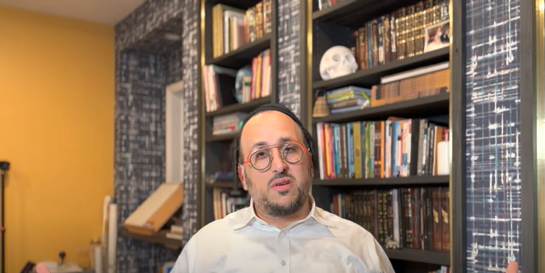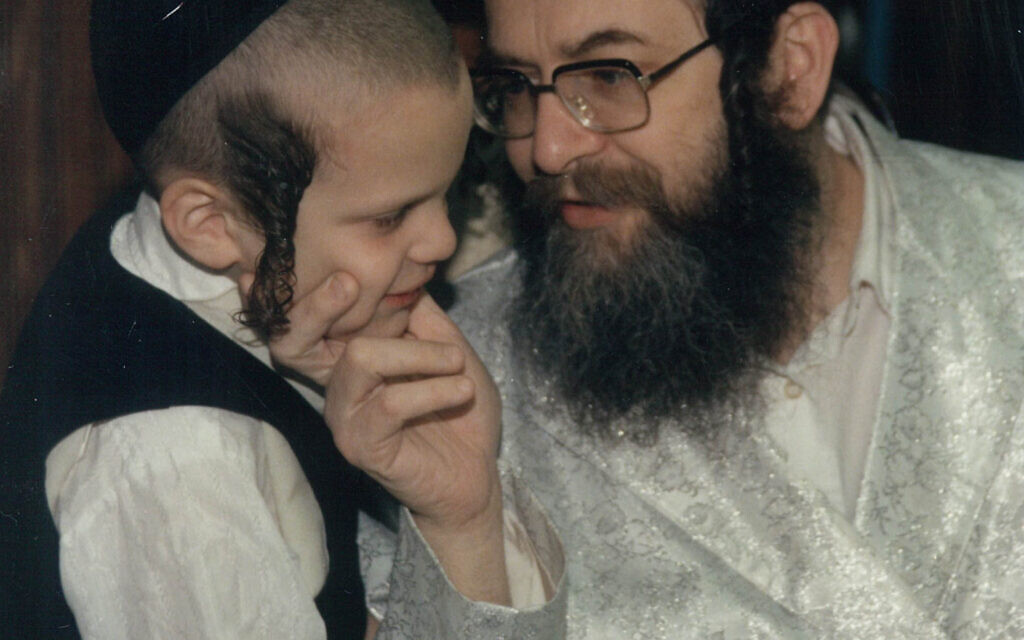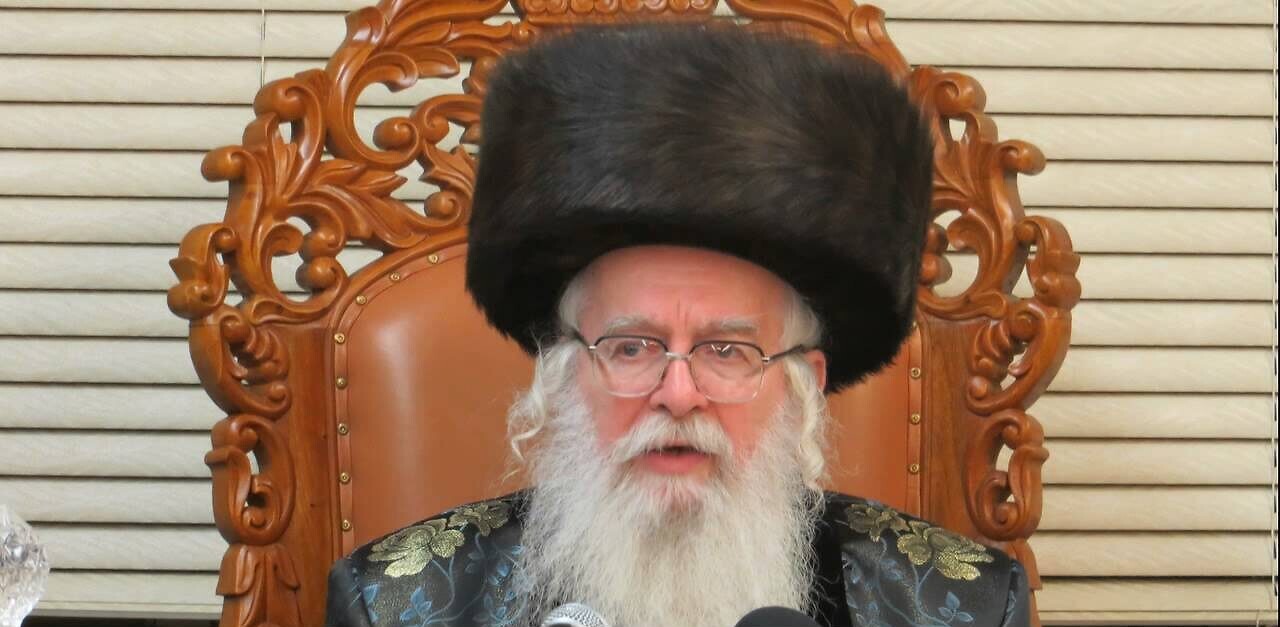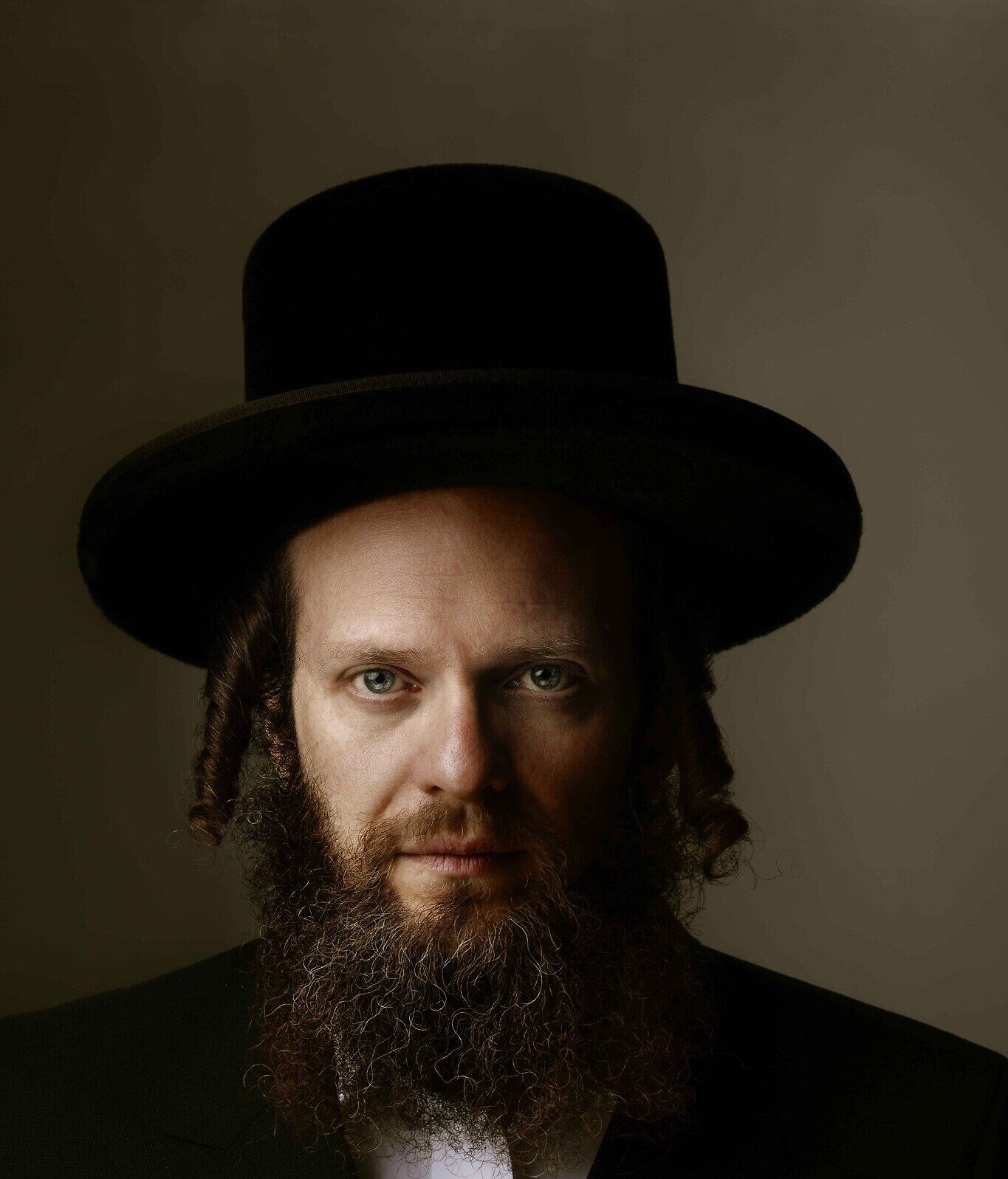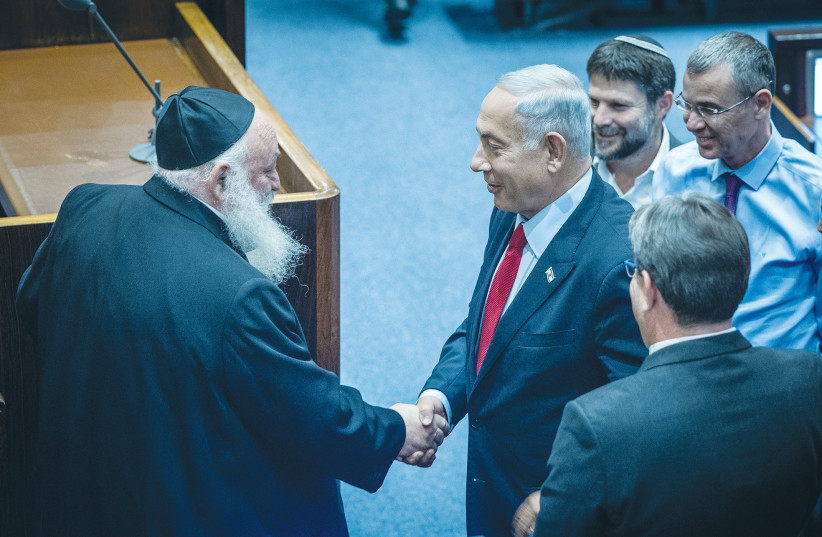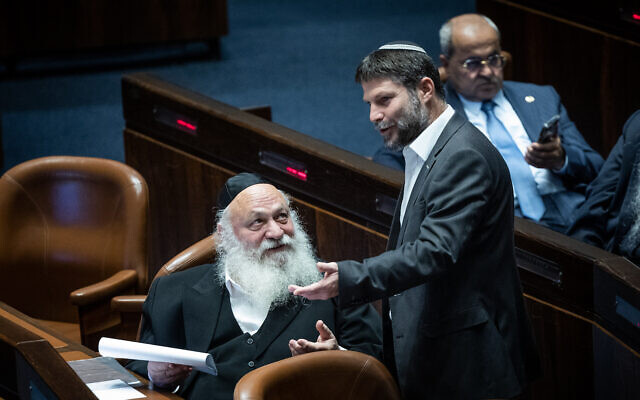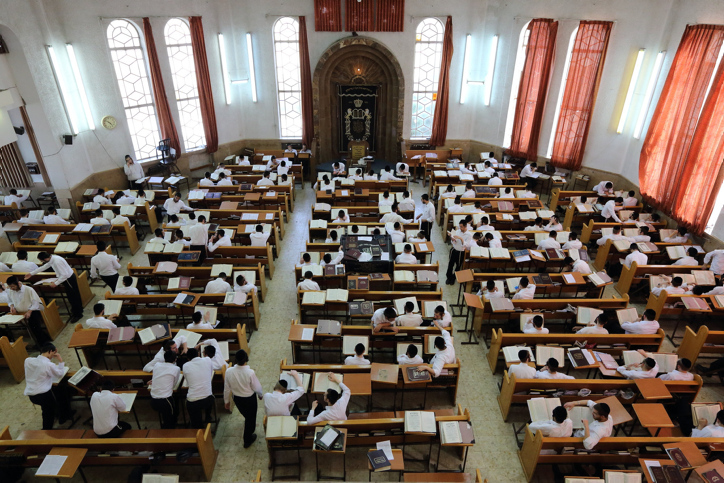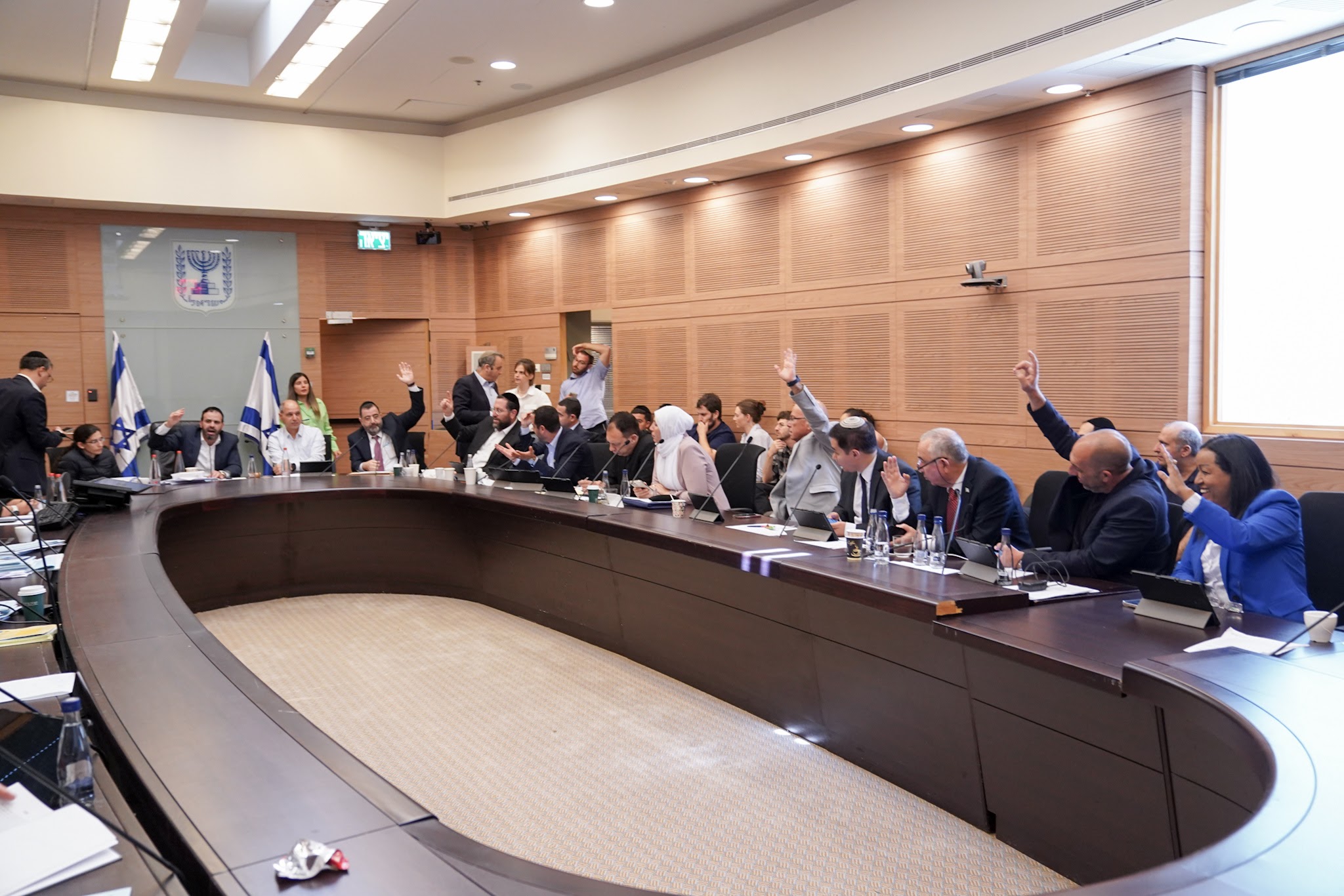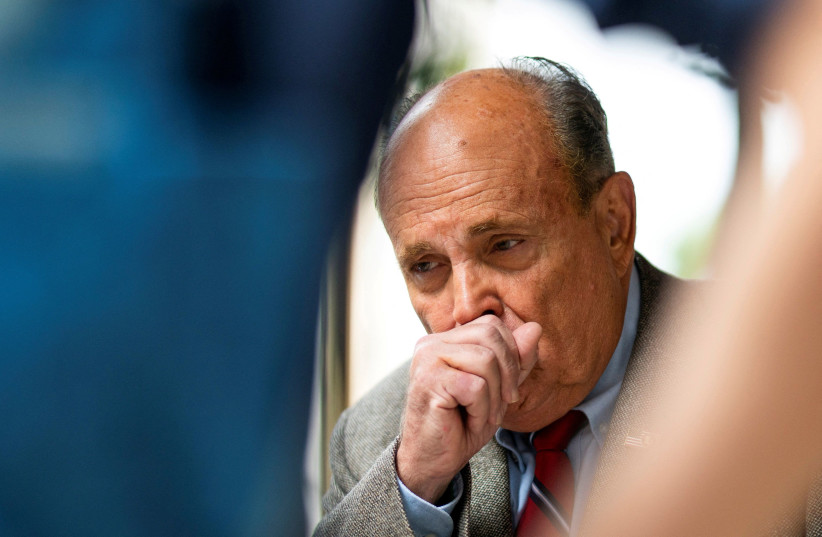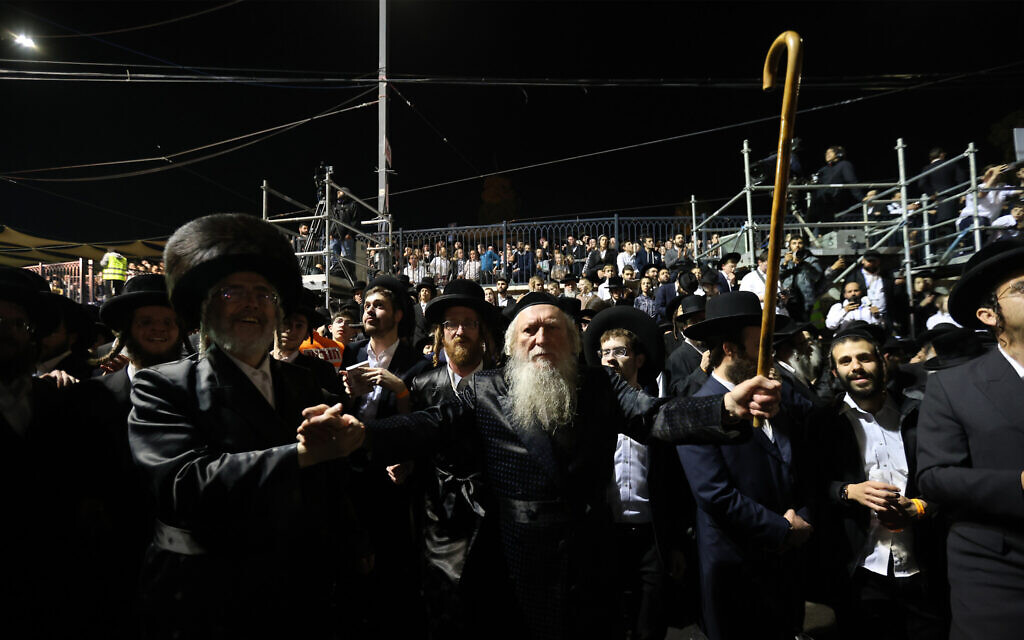At Meron pilgrimage, joy and grief mix as Haredi traditions and secular Israel clash
At renewed annual Lag B’Omer event, worshipers
mourn the 45 attendees killed in deadly 2021 crush, while chafing at
regulations meant to head off another disaster
The hilltop gravesite of Rabbi Shimon bar Yochai was already in sight
for Yitzhak Kazin when two police officers stopped him from crossing
over to the shrine through an impromptu checkpoint.
Irritated, Kazin, a 37-year-old Haredi garbage truck worker from Bnei
Brak, showed them that he was wearing the orange wristband necessary
for admission into the heart of the annual pilgrimage on the Jewish
holiday of Lag B’Omer to the final resting place of the second-century
sage, on Mount Meron.
The wristband, and the strict enforcement of the crowd control
measures that it facilitates, were precautions implemented this year for
the first time around the gravesite in northern Israel where 45 people
died in a crush during the 2021 pilgrimage. The incident, caused by
overcrowding, was the worst civil disaster in Israel’s history.
More than merely a technical crowd management issue, the security
arrangements around Meron are a point of friction between strictly
devout Haredi Jews, who live in insular communities led by rabbis, and
the enforcement and regulation mechanisms of the more secular State of
Israel. The state’s actions, policies and principles often clash with
those of the ultra-Orthodox world.
“They don’t want us to come here, that’s the truth,” Kazin said after
he entered the site. “So they divide us, send some of us here and some
of us there. Because to them, we’re nothing but a nuisance,” he said of
authorities.
“They want me to go downhill. I didn’t come from Bnei Brak to be on
some hill. I came to be near Rabbi Shimon Bar Yochai,” Kazin said.
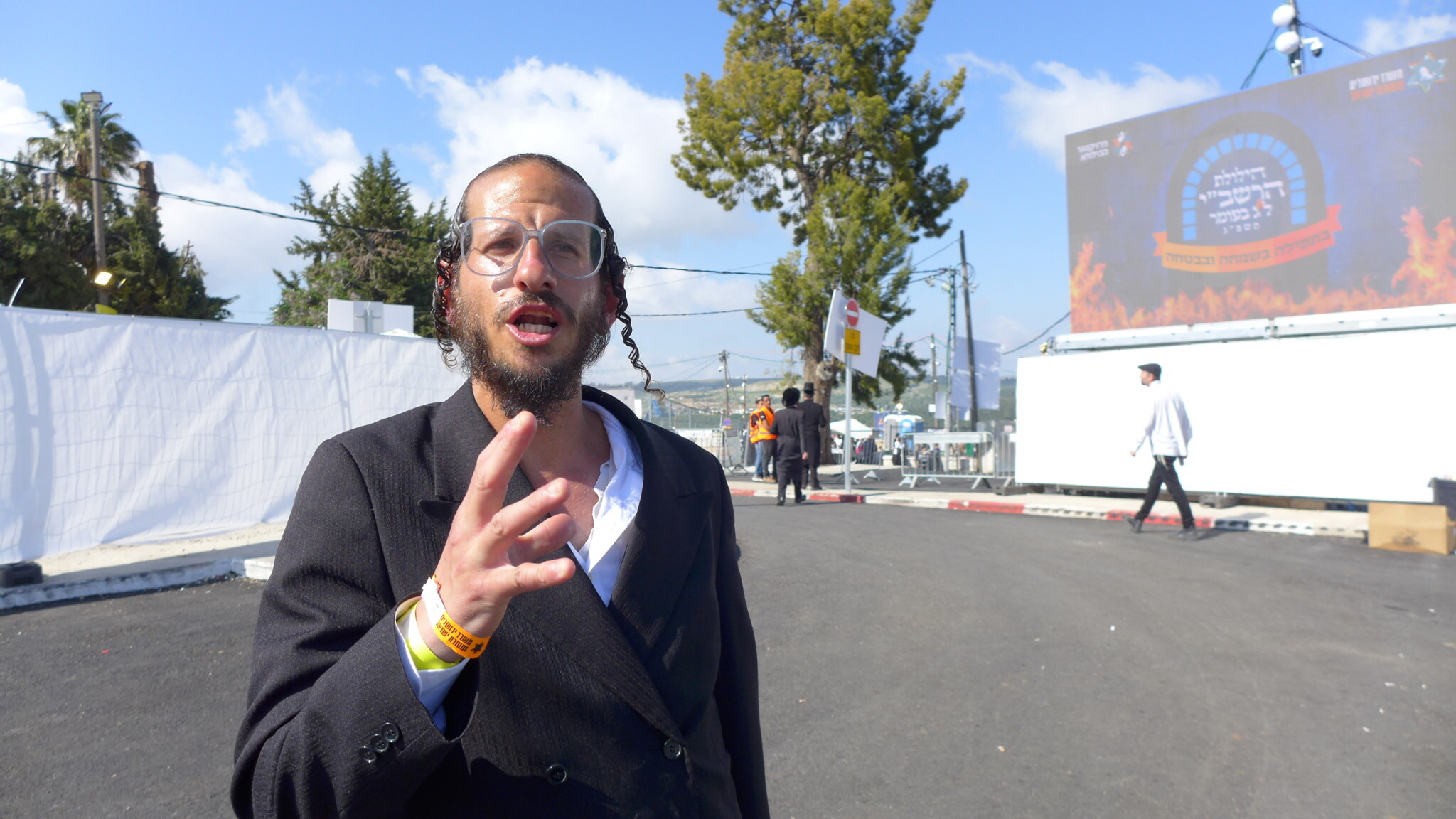
Yitzhak Kazin wear an orange wristband that
allowed him to enter the gravesite of Rabbi Shimon bar Yochai on Mount
Meron, Israel on Lag b’Omer eve, May 8, 2023
Following the 2021 catastrophe, several government ministries and
branches overhauled how the pilgrimage is managed. Rabbis kept the 2022
event low scale amid preparations for adaptations that would allow a
resumption of mass events.
Around 200,000 Haredi Jews were expected to attend this year’s pilgrimage to Meron on Monday night.
To prepare for the large numbers, authorities beefed up the
deployment of police officers — there were 8,000 of them at the main
Meron pilgrimage site on Monday — and rescue professionals. Thousands of
stewards from the Haredi public were recruited to minimize friction and
streamline interaction with the pilgrims, some of whom speak better
Yiddish than Hebrew.
Another change was the introduction of stricter enforcement of safety
capacities at the gravesite, which is situated atop a steep summit with
a limited surface area and featuring topographic complications, and
encouraging the unadmitted to celebrate instead at an open area farther
downhill.
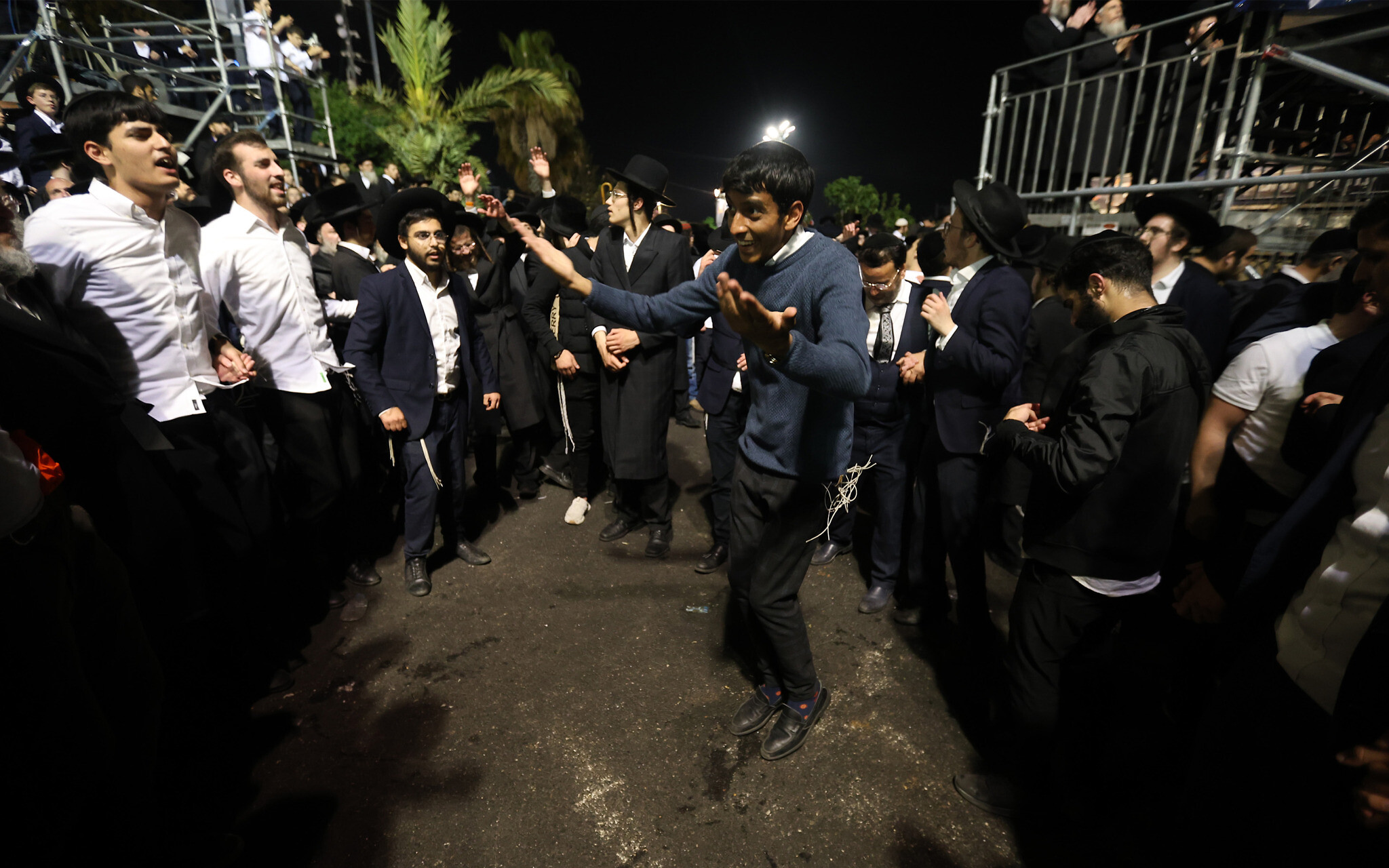
Lag B’Omer celebrations at Mount Meron on May 8, 2023
Some pilgrims, like Moshe Levy from Shiloh, near Jerusalem, accepted the new reality.
He came to the gravesite hours ahead of the main event, lighting a
fire as is customary on Lag B’Omer, to avoid the evening rush and do his
part in reducing the crowd numbers.
“I don’t need the shoving and pushing. The magic happens at the
gravesite and that’s good enough for me,” Levy told The Times of Israel.
But others circumvented the new arrangements.
“He brought me in,” Asher Levy, who is not related to Moshe, said
while pointing to the heavens when asked how he made it into the grave
compound without a wristband. Pressed for more information, he said:
“Oh, I just came down the mountain from a moshav.”
Others, like Kazin, complied with authorities’ requirements but did
so under protest. He “pulled some strings” in Bnei Brak to get an orange
wristband, Kazin said with some pride.
“But how come I need an orange wristband? This place is like my home.
And now a police officer comes here and tells me: ‘Go here, go there?!’
It’s because we’re Haredim so the authorities feel they can walk all
over us,” Kazin said.

Israeli rescue forces and police stand on
the stairs where a mass of people were crushed to death and injured
during the celebrations of the Lag B’Omer holiday on Mount Meron, in
northern Israe
He also complained about the actions of “certain rabbis and people of
influence within our circles, who help the snakes control us.” Asked
whom he meant by snakes, he only said: “I don’t mean to offend. We’re
all Jews.” Visibly upset, he added: “It’s all about control. Like they
did when they made us wear masks.”
During COVID-19, many ultra-Orthodox ignored emergency regulations
based on medical authorities’ policies that mandated wearing face masks
in public, prompting outrage by many non-Haredim who accused the
community of helping the pandemic spread.
Reflecting deep divisions around pragmatism and fatalism, the health
and safety crises set the scene for an ideological clash over the
right-wing policies of the government of Prime Minister Benjamin
Netanyahu, which is dependent on the cooperation of the country’s two
Haredi parties.
Other pilgrims, who did not make it into the gravesite compound,
reacted violently to security arrangements, hurling objects at police,
according to Haaretz. At one checkpoint, young men pushed past police,
according to reports on social media.

Haredi Jews attend Lag B’Omer celebrations in Mount Meron on May 8, 2023
One worshiper allegedly bit
Israel Diskind, whose brother, 23-year-old Simcha Bunim, died in the
2021 catastrophe. Diskind, a spokesperson for Heritage Minister Amichai
Eliyahu, was reportedly suspected by some radicals of being an
undercover police officer. The radicals confronted Diskind, leading to
an altercation. Police detained the man who allegedly bit him but
released the perpetrator to avoid further confrontations, the Kan
broadcaster reported.
Some journalists were cursed at and some police cameras vandalized.
Police said they believe some sites on Meron were exceeding their safety
capacity.
Despite these issues, “generally it has been a peaceful event so
far,” said Dov Maisel, deputy head of operations for United Hatzalah, a
Haredi rescue and first response group that is accredited, along with
Magen David Adom, at the event as responsible for medical issues.
United Hatzalah was working to encourage people not to stay at the
gravesite and leave after half an hour to make room for others, Maisel
said.
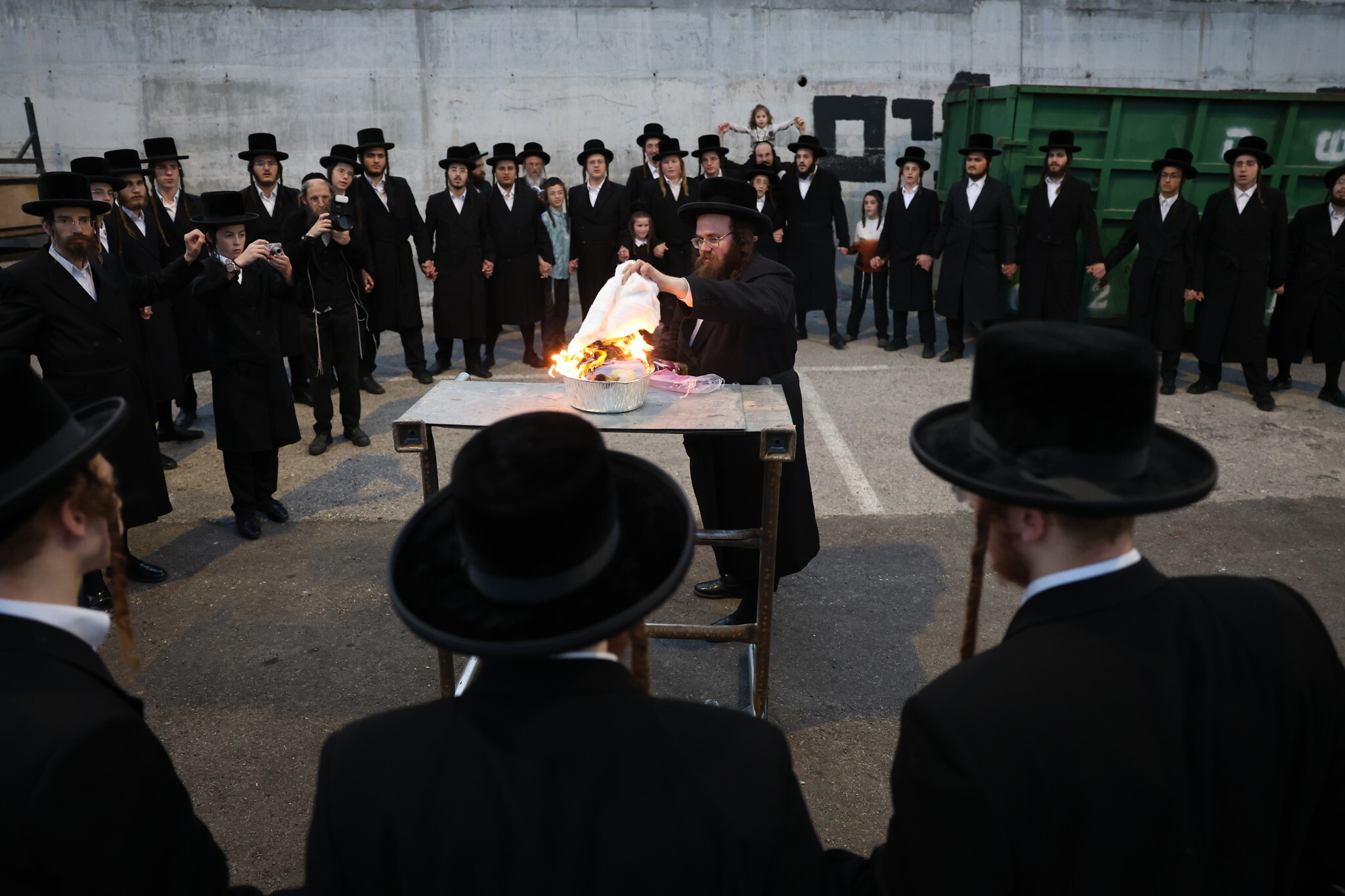
Worshipers light a bonfire a day before the Lag B’Omer celebrations, in Meron
Like the attitudes to the security arrangements around it, the
holiday itself also reflects the split reality that Haredim and
non-Haredim sometimes inhabit in Israel.
For many secular and national religious Israelis, Lag B’Omer is a
minor holiday enjoyed mainly by children, who have bonfires on its eve,
although that custom, too, is declining as authorities increasingly
crack down on it due to safety and environmental concerns.
But for the Haredim, it is a major date that the Talmud ties to a
plague that killed thousands of students of Rabbi Akiva, among the
greatest early rabbinic figures, who legend has it was put to death by
the Romans for defying their restrictions on teaching Torah. According
to Jewish tradition, the plague ceased on Lag B’Omer, making that date a
time of celebration.
Lag B’Omer is also believed to be the date of death of Bar Yochai, a
prominent disciple of Rabbi Akiva and a major figure in Jewish
mysticism, or Kabbalah, whose gravesite on Mount Meron is the locus of
festivities year-round. Bar Yochai’s grave became a site for celebration
because tradition has it that he asked his disciples to rejoice instead
of mourn when they commemorate his death.
Celebrating Lag B’Omer is “refilling the fountains of the soul,” Moshe Levy, the pilgrim from Shiloh, said.

Haredi Jews attend Lag B’Omer celebrations, in Meron on May 8, 2023
At the main ceremony near the gravesite, 4,000 men gathered on Monday
night around a tall metal cylinder full of wood and oil-doused textiles
where the ceremonial fire was to be lit. The excitement was palpable as
a cantor recited Mincha, the afternoon prayer many Jews say each day in
the afternoon. The prayer was followed by a choir that sang Psalms,
their strong tenors reverberating in the cool mountain air as their
listeners swayed with delight.
A cantor then recited the names of the 45 victims of the 2021 crush,
as the crowd listened respectfully. Nachum Dov Brayer, who heads the
Boyan Hasidic dynasty, lit 45 candles in memory of the victims and the
cantor then recited the Kaddish mourning prayer.
After some additional prayers, the fire was lit and the men’s
section, bordering a packed women’s section, exploded into dancing to
the sounds of a live band and choir, including row dancing and the
signature synchronized bobbing jumps of Haredi groups.

Victims of the April 30, 2021, Mount Meron
disaster: Top row (L-R): Chen Doron, Haim Rock, Ariel Tzadik, Yossi
Kohn, Yisrael Anakvah, Yishai Mualem, Yosef Mastorov, Elkana Shiloh and
Moshe Levy; 2nd row (L-R): Shlomo Zalman Leibowitz, Shmuel Zvi
Klagsbald, Mordechai Fakata, Dubi Steinmetz, Abraham Daniel Ambon,
Eliezer Gafner, Yosef Greenbaum, Yehuda Leib Rubin and Yaakov Elchanan
Starkovsky; 3rd row (L-R): Haim Seler, Yehoshua Englard, Moshe Natan
Neta Englard, Yedidia Hayut, Moshe Ben Shalom, David Krauss, Eliezer
Tzvi Joseph, Yosef Yehuda Levy and Yosef Amram Tauber; 4th row (L-R):
Menachem Knoblowitz, Elazar Yitzchok Koltai, Yosef David Elhadad, Shraga
Gestetner, Yonatan Hebroni, Shimon Matalon, Elazar Mordechai Goldberg,
Moshe Bergman and Daniel Morris; 5th row (L-R): Ariel Achdut, Moshe
Mordechai Elhadad, Hanoch Slod, Yedidya Fogel, Menahem Zakbah, Simcha
Diskind, Moshe Tzarfati, Nahman Kirshbaum and Eliyahu Cohen.
Kazin was deeply moved by the gesture to the victims, he said.
But he disputed that the arrangements that irked him were effective attempts to prevent a repeat.
“We want police to help us. Not oppress. It can be done,” Kazin said.
“But to shepherd us you have to know us. And the police don’t know us.”
https://www.timesofisrael.com/at-meron-pilgrimage-joy-and-grief-mix-as-haredi-traditions-and-secular-israel-clash/?utm_source=The+Weekend+Edition&utm_campaign=weekend-edition-2023-05-14&utm_medium=email
